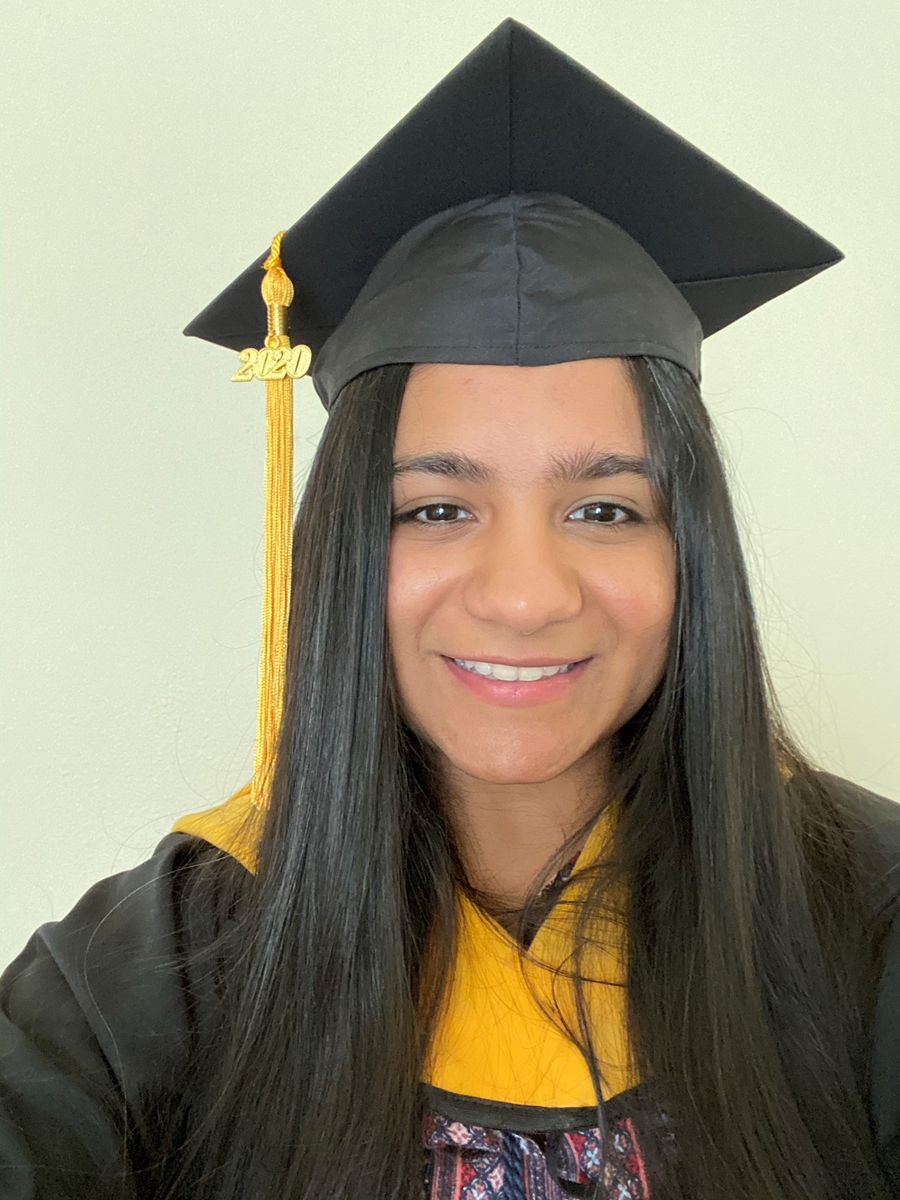Ruhee Keshwani started her speech-language pathology training in India, but was attracted to the University of Arkansas after learning about research opportunities that aligned with her interests.
Keshwani graduated with a Speech-Language Pathology master's degree from the U of A in May and began working as a speech-language pathologist clinical fellow over the summer at a skilled nursing facility in California.
Her research findings are making her a better clinician.
One of Keshwani's projects at the U of A was studying the phonological differences in spoken English, which can pose challenges for international students and their clinical supervisors.
In addition to English, Keshwani speaks the Indian languages Hindi, Marathi and Gujarati.
Becoming a clinician in Arkansas meant she had to learn the native accent. Her passion for speech-language pathology, coupled with her personal experience as an international student, fueled the desire to help other international students and their supervisors create a successful learning environment.
She used herself as the primary research subject. Keshwani, originally from Mumbai, wanted to learn whether her accent was a hindrance to patients trying to understand verbal instruction and therapy.
"The outcome of the study helped me understand that my accent wasn't much of a problem for most of my patients and that if I slowed down, they were easily able to understand everything I said," she said. "This was mostly done for the geriatric population with occasional repetitions and written cues for instructions."
While in her second year as a graduate student in the Communication Sciences and Disorders Program at the U of A, Keshwani was awarded the Zenith Rehab-Asian Indian Caucus Scholarship at the 2019 American Speech-Language-Hearing Association (ASHA) conference in Orlando. ASHA is the national credentialing association for speech-language pathologists and audiologists. She presented about her accent research, titled, "Self-Reflection and Critical Thinking in International Student Clinical Education."
Keshwani is leaning on her training from the U of A — as well as that research — at her new job.
"At the facility when I work with patients, I have to be loud, making sure to give verbal or written instruction as well as reduce my rate and change the way I say a few common phrases — with the American accent — so that it is easier for them to understand me," she said.
Keshwani is thrilled to finally be working with her own patients.
"I have always wanted to work in a field that would help people and working in the field of speech language pathology does just that," she said. "Being able to see the progress that patients make during sessions is the most rewarding thing to me."
This story is the latest in a series called the Dean's Spotlight, featuring outstanding students in the College of Education and Health Professions. Visit COEHP's online magazine, the Colleague, for more news from the six units that make up the College. Visit the Communication Sciences and Disorders page for more information on COEHP's speech-language pathology program.
Topics
Contacts
Shannon G. Magsam, director of communications
College of Education and Health Professions
479-575-3138,
